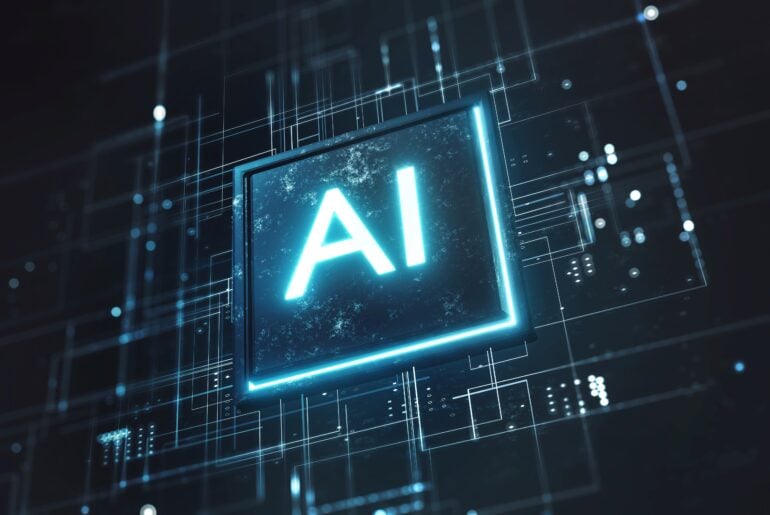Special thanks to our Baker McKenzie speakers Danielle Benecke and Ben Allgrove, and Industry Experts Ashley Pantuliano, Associate General Counsel, OpenAI, Julian Tsisin, Global Legal & Compliance Technology, Meta, Janel Thamkul, Deputy General Counsel, Anthropic, and Suneil Thomas, Managing Counsel, Google Cloud AI. Baker McKenzie is pleased to invite you to an afternoon exploring the legal ramifications of the AI Revolution on October 10. Following an interactive keynote discussion with our in-house panelists, leading Baker McKenzie AI lawyers will address the cutting edge legal and regulatory…
Special thanks to our Baker McKenzie speakers Jim Holloway, Theo Ling and Usman Sheikh, and Industry Leaders Mark Crestohl, Senior Counsel, Accenture, Diana Drappel, Assistant General Counsel, Royal Bank of Canada, Levin Karg, Manager, Modernizing Regulation, Office of Economic Growth & Innovation, Ontario Securities Commission, and Raees Nakhuda, Senior Counsel, Thomson Reuters. Baker McKenzie is pleased to invite you to a breakfast symposium exploring the legal ramifications of the Artificial Intelligence (AI) Revolution with esteemed industry leaders from Accenture, the Royal Bank of Canada, Thomson…
On September 6, 2023, California Governor, Gavin Newson, issued an executive order to study the development, use, and risks of generative artificial intelligence (“Gen AI”). Similar to data privacy, California is the first state to analyze Gen AI under this lens. Under the executive order, state agencies will be required to perform risk assessments, create ethical guidelines for Gen AI usage and formulate new policies and regulations. Goals of the executive order are to (i)…
On August 29, 2023, the California Privacy Protection Agency (“CPPA”) published draft regulations on risk assessments and cybersecurity audits required by the California Consumer Privacy Act (“CCPA”), as amended by the California Privacy Rights Act (“CPRA”). The CPPA will discuss the draft regulations at the upcoming public meeting on September 8, 2023. The draft regulations make clear that the CPPA has not yet begun formal rulemaking, and that the draft regulations are “intended to facilitate…
What rights does a consumer have to a digital product that they purchase? What control does an author have over their creative works? What obligations do others have to you when they use your data to develop new products? None of these questions are new, but the recent proliferation of artificial intelligence (AI) tools, particularly generative AI (GenAI) tools, has brought these questions to the forefront of ongoing conversations about the role that AI will…
There has been an incredible volume of discussion around generative AI (GAI) in 2023, including products like ChatGPT and GitHub Copilot, and the potential impact these tools have on every corner of the business world. This is not surprising given that GAI has demonstrated powerful functionality, making it easy to hypothesize about use cases. Unfortunately, on top of the fervor, the use of GAI presents a multitude of risks. Some companies have banned GAI use…
New York may soon restrict employers and employment agencies from using fully-automated decision making tools to screen job candidates or make other employment decisions that impact the compensation, benefits, work schedule, performance evaluations, or other terms of employment of employees or independent contractors. Draft Senate Bill 7623, introduced August 4, aims to limit the use of such tools and requires human oversight of certain final decisions regarding hiring, promotion, termination, disciplinary, or compensation decisions. Senate Bill…
The proposed EU AI Act cleared an important hurdle last week, following the approval of the negotiating draft by MEPs on 14 June. The trilogue will now get underway – this is the three-way discussion between the European Parliament, Commission and Council – and we set out below some key takeaways from the recent vote. The Act could in theory be adopted in early 2024 and in force by 2026. If negotiations go smoothly (and…
In Brief Recent developments in AI technologies have led to the increased use of AI to create a range of concepts, developments, research, and even lines of software code, in response to human inputs. This has resulted in an uptick of patent applications filed with the U.S. Patent and Trademark Office (the “USPTO”) seeking patents with varying degrees of contributions from AI tools. This calls into question whether, and to what extent, inventions involving contributions…
¿Deben o deberían las empresas dar indicaciones a sus empleados sobre si pueden, o no, usar herramientas de inteligencia artificial (IA) al realizar sus funciones? Sí, en España están obligadas por ley a hacerlo y además es siempre recomendable. La utilización de IA sin un trabajo previo de identificación y minimización de los riesgos (legales, organizativos y de seguridad) es una amenaza claramente detectada en el sector privado desde hace años. Resulta ilustrativo constatar como…








